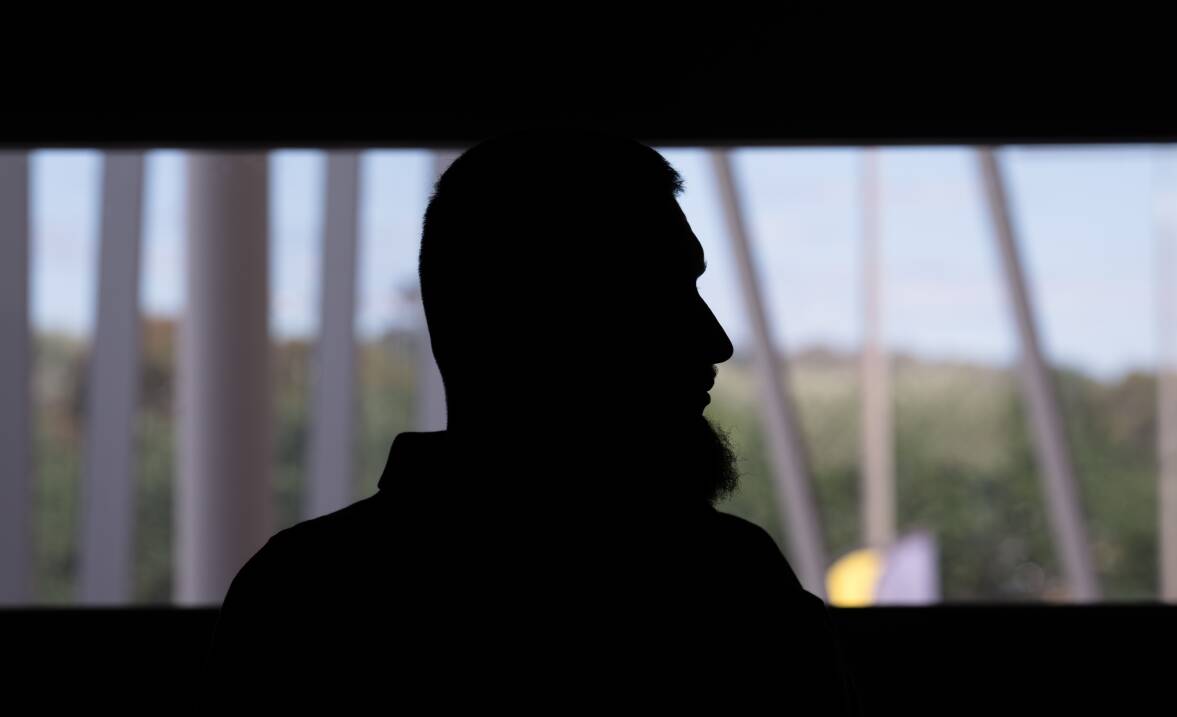The last time Enver saw his home was the day the war began. Just hours after Russian tanks and troops swarmed across the Ukrainian border, he and his pregnant wife packed their two children into the car and started the long journey from their home in the Kyiv suburb of Hostomel to the south-western city of Izmail, where they had family.
Enver, who The Canberra Times is identifying only by his patronymic, planned to take his family to relative safety and then return to Kyiv to pick up cash and documents.
But there would be no going back. Hostomel would quickly become a place of horrors. Enver's neighbours would be killed by Russian soldiers. His house would be destroyed by a rocket, so would his business.
"I never saw my house again. Not the house, not my neighbours, not my friends," Enver said.
Enver and his family are among thousands of Ukrainians who fled the war to Australia.
Figures from Home Affairs show the department has granted more than 12,000 visas to Ukrainian nationals in Ukraine and thousands more to those in other places.
It would take the family more than two months, countless hurdles and letters to former Prime Minister Scott Morrison and then Home Affairs Minister Karen Andrews to reach the safety of Australia. Two years since Russia's invasion, Enver sat down with The Canberra Times to share his story.
Broken plans

For Enver, Australia had never been on cards. Before Russia invaded, he ran a burger restaurant in Kyiv. It afforded his family a luxury lifestyle in the satellite suburb of Hostomel.
Business was prospering, so much so that he envisioned in a few years he would be able to move his family to Spain, enrol his children in a school there and run the business mostly remotely. But like that of many Ukrainians, their long thought-out plans were shattered on February 24.
That day, they joined the long queue of cars filled with families fleeing the suburb that would be under Russian occupation for the next month.
No going back
Typically, the drive from Kyiv to the south-western city of Izmail took eight hours. On February 24, it stretched into a day-long journey. Enver planned to briefly leave his family there and journey back to Kyiv where he could get documents and other essentials before rejoining them. But that plan fell apart when he spoke to his neighbour.
"He says, brother, your house has been hit by a rocket," Enver recalled. "Two of our neighbours have been killed. [The Russians] just pulled them out of their houses and killed them."
He would later learn that his closest friend had also died after his legs were torn off in a rocket attack.
"I understood then there was no point in going back," he said.

'People were screaming'
Enver describes himself as a patriot, but says he doesn't want to leave his family and die in the war like so many of his countrymen had. In early March of 2022, he decided his family needed to leave the country and headed for the border.
"Terrifying things were happening at the border as men and women were forced to part. People were screaming, crying, standing on their knees," the 40-year-old said.
When they finally reached the checkpoint between Ukraine and Moldova, Enver's wife and their two children were permitted to cross but Enver himself was stopped from leaving.
Ukraine was now under martial law, which meant men of fighting age, those aged 18 to 60, were forbidden from leaving the country.
There were exceptions though, including for men with three children. Enver had two children and a pregnant wife. He hoped that would be enough but the border guards refused to let him through.
"I said my wife is pregnant, so let's do it like this. I'm parking my car here, she'll give birth here and you can personally cut the umbilical cord and then we'll go. Does that work?"
Several hours later, they crossed the border to Moldova. The family would travel through Moldova, Romania and Spain before they decided to come to Australia.
"For me Australia was like something on another planet," Enver said. "But I studied history and I knew there had never been war on Australian territory."
Enver applied for an Australian tourist visa in late March. But weeks went by and no response came. Enver wrote to then prime minister Scott Morrison, former home affairs Minister Karen Andrews and other MPs. Hours later, the family received four visas to Australia.

Visa stress
Since landing in the country in May of 2022, Enver has found a job and enrolled his children in school. In August of 2022, his third child was born in Canberra Hospital.
But having created a life for himself and his family here, another fear now keeps him awake at night. Like thousands of others, their humanitarian visas are set to expire next year.
"The closer that date gets, the fewer hours I sleep," he said, adding that an absence of documents made things even more difficult.
This week, the Australian Federation of Ukrainian Organisations called on the government to review the visa legislation for refugees like Enver and his family.
A Home Affairs spokesperson said the department "continues to progress visa applications from Ukrainian nationals as a priority", particularly for those with a strong connection to Australia.
Enver says his family has residency in the UK, Canada and EU but wants to stay in Australia.
"For me there's no better place on earth," he said. "But I don't know what else I need to do to make that happen."







